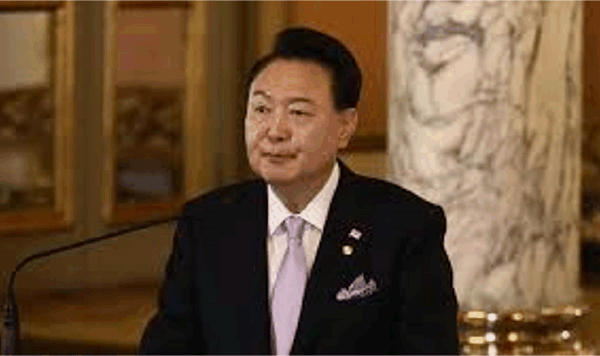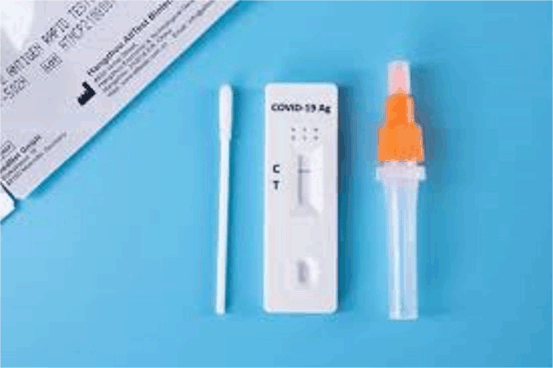미국과 EU가 중국 자동차에 대한 장벽을 세우고 있는 동안 호주인들은 기록적인 수준으로 중국 자동차를 구매하고 있습니다.
라클란 베넷
게시일: 2024년 5월 31일 금요일 오전 4:422024년 5월 31일 금요일 오전 4:42
전시장에 줄지어 늘어선 흰색 전기차.
스웨덴의 EV 브랜드 폴스타(Polestar)는 중국에서 자동차를 생산합니다.
간단히 말해서, 중국산 자동차는 호주에서 세 번째로 인기 있는 차량이 되었으며, 2025년에는 더 많은 중국 자동차가 출시될 예정입니다.
미국은 자국 자동차 산업을 보호하기 위해 중국산 전기차에 높은 관세를 부과했다.
다음 단계: 유럽도 관세를 고려하고 있지만 호주의 자동차 옹호자들은 경쟁을 유지하기를 원합니다.
호주의 도로는 오랫동안 일본, 독일, 미국의 자동차 거대 기업이 지배해 왔지만 중국은 빠르게 영광의 차고에서 그 자리를 차지하고 있습니다.
올해 중국산 차량은 호주에서 신차 판매에 있어 세 번째로 인기 있는 선택이 되었으며, 기아와 현대의 본고장인 한국을 4위로 끌어내렸고, 제조 선두업체인 태국과 일본을 앞지르며 빠르게 입지를 굳혔습니다.
호주에서 중국산 자동차의 판매량은 2014년 4,154대에서 지난해 193,433대로 급증했습니다.
그리고 중국 거대 기업인 광저우 자동차 그룹(Guangzhou Automobile Group)과 지리 자동차(Geely Auto)의 모델이 내년에 호주 도로에 출시될 예정이므로 계속 성장할 가능성이 높습니다.
그러나 호주인들이 빠르게 중국 자동차와 사랑에 빠지는 동안, 일부 서방 국가들은 헤어지려고 노력하고 있습니다.
호주산 원산지별 자동차 판매량(GIPHY)
중국 자동차에 대한 사랑은 위태로운가요?
중국 자동차 산업의 성공은 미국 내 적대감을 불러일으켰는데, 지난달 백악관은 중국 전기차(EV)에 대한 국경세를 25%에서 100%로 4배 인상했습니다.
관세는 미국의 자동차 산업을 중국 경쟁으로부터 보호하려는 노골적인 시도이며, 조 바이든 대통령은 컴퓨터 칩, 배터리, 철강을 포함한 다른 중국 수입품에 대한 징벌적 조치도 도입했습니다.
바이든은 “그들이 시장에 넘쳐나고 있다”고 말했다.
“경쟁이 아니라 부정 행위입니다.”
수십억 달러 규모의 자동차 산업을 보유한 유럽도 중국의 성공을 경계하고 있습니다.
지난 9월, 유럽연합 집행위원회는 6월 초에 발표할 것으로 예상되는 관세 부과 여부에 대한 조사를 시작했습니다.
우르줄라 폰 데어 라이엔 대통령은 “세계 시장은 막대한 정부 보조금으로 인위적으로 낮은 가격이 유지되는 저렴한 전기 자동차로 넘쳐나고 있다”고 말했다.
중국 상무부는 미국의 관세가 “양국 협력 분위기에 심각한 영향을 미칠 것”이라고 말하면서 이러한 비난에 대해 반격했다.
중국은 어떻게 성공했을까?
시드니 거리의 핑크색 BYD 돌핀 EV.
중국 자동차 제조업체 BYD는 호주 시장에서 두 번째로 많은 EV를 판매하고 있습니다.(로이터: Stella Qiu)
중국 자동차 산업에 대한 반발이 급속히 발생했지만, 그 성공이 하루아침에 이루어진 것은 아닙니다.
중국 정부는 침체된 자동차 산업이 유럽, 아시아, 미국의 거대 기업을 따라잡을 수 있도록 수십 년을 노력해 왔으며 석유화학 추진 시대에는 실패했지만 전기 자동차 시대에는 성공을 거두었습니다.
시드니 공과대학교 호주-중국 관계 연구소의 마리나 장(Marina Zhang)은 “실질적인 산업 정책과 금융 보조금”이 EV 산업을 성숙시키는 데 도움이 되었지만 중국도 몇 가지 경쟁 우위를 갖고 있다고 말했습니다.
“중국의 EV 산업은 공급망의 대부분을 통제합니다”라고 그녀는 말했습니다.
“그래서 그들은 종종 여러 다른 대륙에 뻗어 있는 다른 자동차 제조업체에 비해 공급망이 매우 짧습니다.”
중국의 자동차 제조업체들은 또한 배터리 제조에 대한 중국의 기존 전문 지식을 활용하여 수직적 통합을 통해 비용을 더욱 절감할 수 있다고 그녀는 말했습니다.
Zhang 교수는 정부가 이 분야를 지원해 온 역사가 강력한 국내 경쟁을 조성해 왔으며 현재 수백 개의 EV 스타트업이 가장 크고 최고로 성장했다고 말했습니다.
그녀는 “세계 상위 20개 전기차 제조업체 중 절반이 중국 기업이고 시장을 장악하고 있는 10개 대형 기업이 판매 경쟁에서 나왔다”고 말했다.
“그래서 나는 정부 보조금이나 정부 정책이 그 승자를 직접 뽑았다고 말하지 않을 것입니다.”
“그것은 실제로 시장과 내부 경쟁의 통합입니다.”
호주인들이 중국에서 물건을 구매하는 이유는 무엇입니까?
자동차 쇼룸에 지리자동차(Geely)의 전기차가 전시되어 있습니다.
2021년 상하이 오토 쇼에서 전시된 Geely의 Zeekr 001 전기 자동차.(로이터: Aly Song)
소비자 인식 증가, 비용 경쟁력, 기술 발전 및 호주-중국 자유 무역 협정에 따른 관세 인하 모두가 호주에서 중국 자동차 판매를 촉진하는 데 도움이 되고 있습니다.
이러한 성장의 대부분은 EV의 인기 상승에 따른 것으로, 지난해 호주에서 판매된 86,828대 중 72,342대가 중국에서 나왔습니다.
호주 연방챔베(Federal Chambe) 대변인
r of Automotive Industries(FCAI)는 경쟁이 심화되고 중국산 차량의 가용성이 높아져 소비자 선택이 향상되어 호주인들이 업무, 레크리에이션 및 가족에 가장 적합한 자동차를 구입할 수 있게 되었다고 말했습니다.
하지만 중국 매출 성장은 중국 브랜드만의 문제가 아니다.
FCAI 판매 데이터에 따르면 지난해 호주에서 판매된 거의 20만 대의 중국산 자동차 중 4분의 1은 상하이에 있는 ‘기가팩토리’에서 연간 최대 75만 대를 생산할 수 있는 미국 회사 Tesla가 만든 EV였습니다.
그리고 “중국 자동차”를 구성하는 요소는 중국 기업이 서구 브랜드를 구매하려는 움직임으로 인해 더욱 복잡해졌습니다. 예를 들어, 중국 회사 Geely는 2010년에 유럽 스타일의 대명사인 볼보를 인수했습니다.
호주도 관세를 도입할 계획인가요?
빨간색 Tesla Model 3 세단이 대리점 건물 뒤쪽에 Tesla 로고가 표시된 Tesla 대리점에서 충전되고 있습니다.
다른 어떤 회사보다 호주에서 더 많은 EV를 판매하는 Tesla는 상하이에 있는 “기가팩토리”에서 연간 최대 750,000대를 생산할 수 있습니다.(AP: David Zalubowski, 파일)
호주 정부는 지금까지 관세 도입에 있어 미국의 선례를 따르지 않았습니다. 그 이유는 호주가 더 이상 보호할 자동차 산업이 없기 때문입니다.
그러나 외교통상부는 “국제 무역 규칙에 부합하는 방식으로 이러한 문제를 관리하기 위한 협력 방안을 장려할 것”이라며 국제적 반발을 피할 수 없었다고 말했다.
대변인은 “호주는 강력한 다자간 규칙 기반 무역 시스템을 지원함으로써 제조업체와 생산자를 위한 공평한 경쟁의 장을 유지하기 위해 최선을 다하고 있습니다”라고 말했습니다.
호주가 관세 도입을 고려할 것인지 묻는 질문에 국무부는 무역 정책 문제에 대한 결정이 “호주의 국익을 위해 내려졌다”고 말했습니다.
FCAI는 “중국산 차량의 증가를 포함해 궁극적으로 호주 소비자에게 이익이 될 경쟁을 지지한다”고 밝혔다.
대변인은 “호주는 중국을 포함한 다양한 국가의 차량이 우리의 규제 기준을 충족해야 하는 공정하고 경쟁적인 시장 환경을 유지하고 있다”고 말했다.
“앞으로 업계의 주요 우선순위에는 호주인들에게 선택, 혁신 및 환경 친화적인 옵션을 지속적으로 제공하는 것이 포함됩니다.”
2023년 호주에서 판매된 중국 차량 20만 대는 일본에서 판매된 345,000대에 비해 여전히 훨씬 뒤처져 있습니다.
안경을 쓴 여성이 카메라를 바라보고 있다.
Marina Zhang은 시드니 공과대학교의 호주-중국 관계 연구소 출신입니다. (제공)
Zhang 교수는 중국이 EV로 “시장을 범람시키고 있다”는 주장에도 불구하고 전 세계 자동차 함대는 여전히 내연 기관에 의해 지배되고 있으며 소비자는 궁극적으로 “자신의 필요에 맞는 제품을 선택할 것”이라고 말했습니다.
그녀는 “우리 동맹국을 지지하고 미국, 독일에서 만든 매우 비싼 EV를 계속 구매하고 싶어하는 소비자가 있을 것이라고 확신한다”고 말했다.
“그러나 대부분의 소비자는 지갑을 사용하여 투표할 것이라고 생각하며 중국 EV는 매우 강력한 비용 이점을 보여주고 있습니다.
“중국 최대의 EV 제조업체인 BYD는 지난 몇 년 동안 호주에서 판매량이 6배 증가했습니다. 이는 소비자들이 중국에서 만든 자동차를 받아들이는 것을 의미합니다.”
게시일: 2024년 5월 31일
r of Automotive Ind
While the US and EU are putting up barriers to Chinese cars, Australians are buying them at record levels
Posted Fri 31 May 2024 at 4:42amFriday 31 May 2024 at 4:42am
abc.net.au/news/chinese-cars-third-most-popular-in-australia/103909144Copy link
Link copiedShare article
- In short: Chinese-made vehicles have rapidly become the third most popular in Australia, with more Chinese cars launching in 2025.
- The US has introduced steep tariffs on Chinese electric vehicles to protect its own automotive industry.
- What’s next: Europe is also considering tariffs, but Australian auto advocates want to preserve competition.
Australia’s roads have long been dominated by the auto giants of Japan, Germany and the United States but China is fast earning its spot in the garage of glory.
This year, vehicles from China became the third most popular choice for new car sales in Australia, knocking South Korea — the home of Kia and Hyundai — down to fourth place, and rapidly gaining ground on manufacturing leaders Thailand and Japan.
The rise of Chinese cars in Australia has been meteoric, jumping from 4,154 sales in 2014 to 193,433 last year.
And it’s likely to keep growing, with models from Chinese giants Guangzhou Automobile Group and Geely Auto set to roll onto Australian roads next year.
But while Australians are fast falling in love with Chinese cars, some other Western nations are trying to break up.Australian car sales by country of origin(GIPHY)
Is the love affair with Chinese cars on the rocks?
The success of China’s auto industry has been met with hostility in the US, with the White House last month quadrupling the border tax on Chinese electric vehicles (EV) from 25 per cent to 100 per cent.
The tariff is an unabashed attempt to protect America’s auto industry from Chinese competition, with President Joe Biden also introducing punitive measures against other Chinese imports including computer chips, batteries and steel.
“They’re flooding the market,” Mr Biden said.
“It’s not competing, it’s cheating.”
Europe, which has its own billion-dollar auto industry to consider, is also wary of Chinese success.
In September, the European Commission started investigating whether it should impose its tariffs with an announcement expected in early June.
President Ursula von der Leyen said global markets were being “flooded with cheaper electric cars” with prices “kept artificially low by huge state subsidies”.
China has hit back at the accusations, with the country’s Commerce Ministry saying the US tariffs would “severely affect the atmosphere for bilateral cooperation”.
How did China become so successful?
While the backlash against China’s auto industry has been swift, its success didn’t happen overnight.
The Chinese government has spent decades trying to help its flagging auto industry catch up to the giants of Europe, Asia and the US, and while it failed in the era of petrochemical propulsion, it found success in the age of the electric vehicle.
Marina Zhang, from the University of Technology Sydney’s Australia-China Relations Institute, said while “substantial industrial policies and financial subsidies” had helped its EV industry mature, China also had several competitive advantages.
“China’s EV industry controls the majority of the supply chains,” she said.
“So they often have very short supply chains compared to other car manufacturers, which are often stretched to several different continents.”
China’s automakers could also leverage the country’s existing expertise in battery manufacturing, which further pushed down costs through vertical integration, she said.
Professor Zhang said the government’s history of supporting the sector had fostered strong domestic competition, with hundreds of EV startups now whittled down to the biggest and best.
“Among the top 20 EV manufacturers in the world, half of them are Chinese and those 10 large ones that dominate the market came out of the competition for sales,” she said.
“So I wouldn’t say government subsidies or government policies hand-picked those winners.”
“It is really the consolidation of the market and the internal competition.”
Why are Australians buying from China?
Growing consumer awareness, cost competitiveness, technological advances and a cut in tariffs thanks to the Australia-China Free Trade Agreement are all helping to drive sales of Chinese vehicles in Australia.
Much of the growth can be attributed to the rising popularity of EVs, with 72,342 of the 86,828 sold in Australia last year coming from China.
A spokesperson from Australia’s Federal Chamber of Automotive Industries (FCAI) said increased competition and the availability of Chinese-produced vehicles had “enhanced consumer choice, allowing Australians to purchase cars that best fit their work, recreation, and family”.
But the growth in Chinese sales isn’t just about Chinese brands.
FCAI sales data shows that of the almost 200,000 Chinese-manufactured cars sold in Australia last year, a quarter were EVs made by US company Tesla, which can produce up to 750,000 a year at its “gigafactory” in Shanghai.
And what constitutes a “Chinese car” is further complicated by Chinese companies’ moves to purchase Western brands. For example, Chinese firm Geely bought Volvo — a company synonymous with European style — in 2010.
Is Australia also planning to introduce tariffs?
The Australian government has so far not followed the lead of the US in introducing tariffs, largely because Australia no longer has an automotive industry to protect.
But the international backlash has not escaped the attention of the Department of Foreign Affairs and Trade, which said it will “encourage cooperative avenues to manage these issues, in a manner consistent with international trade rules”.
“Australia is committed to maintaining a level playing field for our manufacturers and producers by supporting a robust multilateral rules-based trading system,” a spokesperson said.
When asked whether Australia would consider introducing tariffs, the department said decisions on trade policy matters were “made in Australia’s national interest”.
The FCAI said it supported competition “including an increased presence of Chinese-produced vehicles, that will ultimately benefit Australian consumers”.
“Australia maintains a fair and competitive market environment where vehicles from various countries, including China, must meet our regulatory standard,” the spokesperson said.
“Looking ahead, the key priorities for the industry include continuing to provide Australians with choice, innovation, and environmentally friendly options.”
The 200,000 Chinese vehicles sold in Australia in 2023 are still far behind the 345,000 coming from Japan.
Professor Zhang said despite claims China was “flooding the market” with EVs, the global vehicle fleet was still dominated by internal combustion engines and consumers would ultimately “choose products that suit their needs”.
“I’m sure there are consumers that want to support our allied countries, and continue to buy very expensive EVs made in Germany, the US,” she said.
“But I think most consumers will vote using their wallet and Chinese EVs are just demonstrating very strong cost advantages.
“BYD, China’s largest EV maker, has seen its sales grow sixfold in Australia in the past couple of years. So that suggests consumers accept vehicles made in China.”
Posted 31 May 2024










